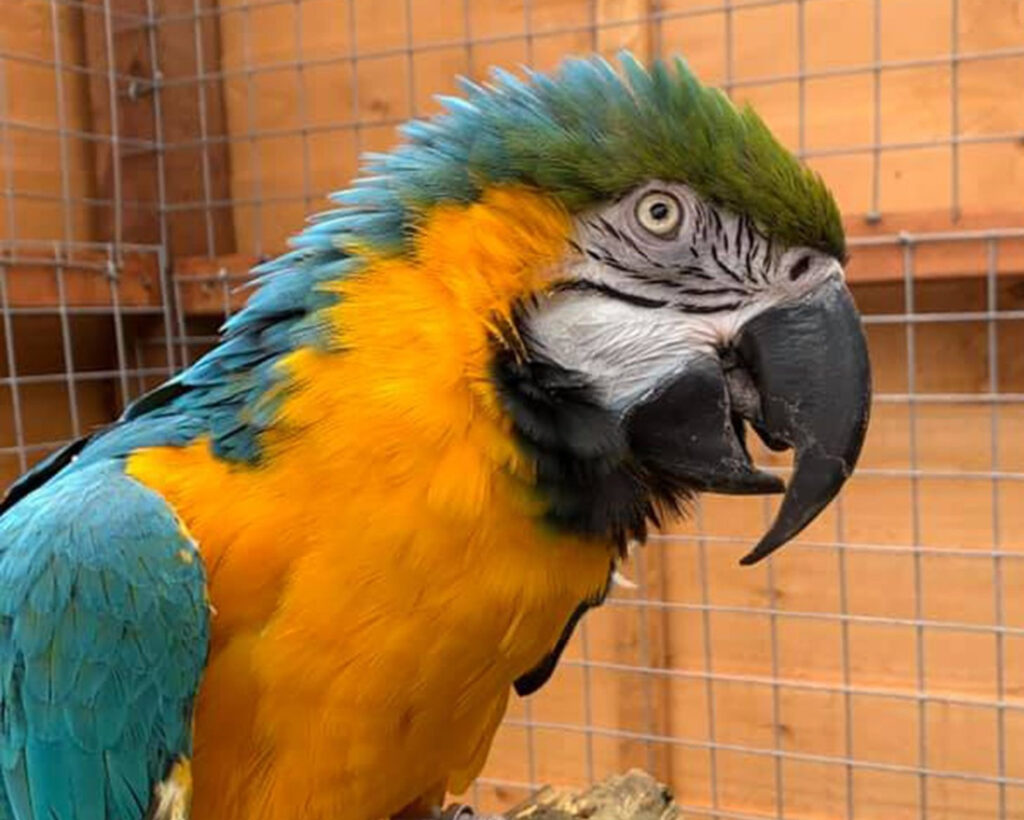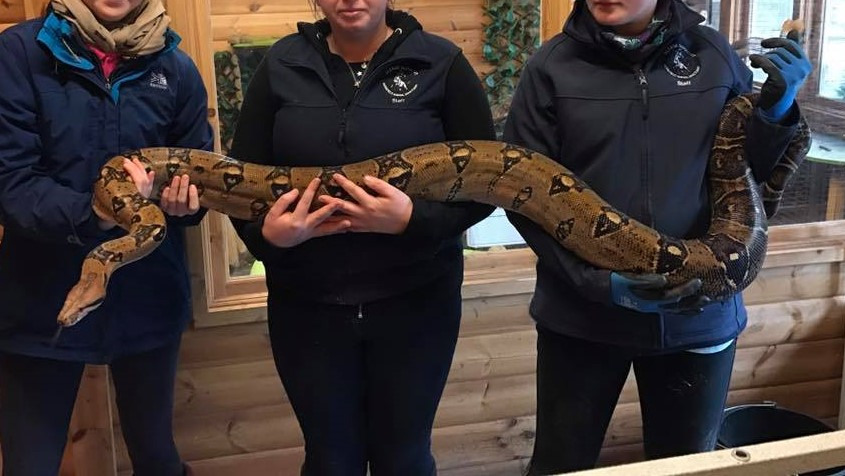We take a look at the he reality of animal cruelty in the tourist industry and how we can all avoid being part of the problem.
We’re a nation of animal lovers (on the whole!) but while we’re all used to having dogs, cats, rabbits and other familiar friends, there is also another category of pets that, sadly, is on the rise. Exotic pets. We understand that raccoons look adorable, and parrots are pretty cool, but it is sanctuaries like Hopefield Animal Sanctuary that have to pick up the pieces when exotic pet ownership invariably goes wrong. But what are exotic pets and why should these animals not be kept as pets?
EXOTIC PETS – WHAT ARE THEY?
If it’s unusual then chances are it’s an exotic pet. Examples include:
This is by no means a definitive list, and the exotic pet trade in the UK is, sadly, a big business.
BUT WHY DO THESE ANIMALS NOT MAKE GOOD PETS?
The exotic pet trade is worth billions of pounds annually, but these animals, birds and reptiles make far from ideal pets for so many reasons, including the fact that:
WHAT EXOTIC ANIMALS DO YOU HAVE AT HOPEFIELD ANIMAL SANCTUARY?
Here at Hopefield our exotics and non-domestics include a skunk, palm civet, foxes, raccoons, tanuki, iguanas, snakes, frogs, reindeer, marmosets and lots more, most of who were kept by people who bought them as pets. Here are some of their stories, which underline why ownership of these types of pets is a bad idea…
Takara the Tanuki

Takara the Tanuki was rescued by a kind lady from a terrible existence where she was being kept as a pet in a rabbit hutch. Tanuki need space! In the wild they live in forest areas and roam far and wide. They also smell, which makes them not the most pleasant of animals to live with… they use scent to communicate with one another. We have 12 Tanuki here at Hopefield, none of who should ever have been a pet, and many who came to us in a sorry state. Fact: Tanuki are on the Invasive Species List which means that they are not allowed to be bred, bought or sold as pets.
Blue the Macaw

Blue is around 18-years-old and was rescued by a couple who found him living in unpleasant conditions. These birds are a challenge to keep and need large enclosures, plenty of enrichment, and a great deal of interaction if you want to gain their trust. They can potentially be quite bitey and are prone to lunging at people, which can obviously cause quite nasty injuries, making them mostly unsuitable for the average household to keep as a pet.
Jimbo the Marmoset

Hopefield found out about Jimbo’s plight when his owner advertised him on Facebook. When staff went to rescue him he was found living in a small rat cage living on a diet of chips and gravy! It took Jimbo a good while to learn how to be a Marmoset when he arrived, and getting him to eat the correct diet was a challenge. There are many reasons why Marmosets do not make good pets including the fact that they scent-mark, they’re highly intelligent creatures who bore easily and they need to live in stable, social groups.
Kiera and Mia the Foxes

Kiera and Mia were rescued from a breeder who did not look after them properly, and who intended to sell them as pets. When they arrived here at Hopefield Animal Sanctuary, Kiera was especially sluggish for a fox cub, and after a visit to the vets it was discovered she had ear mites and a stomach infection that were making her quite poorly. Foxes are naturally timid, nervous animals, they’re full of energy, noisy and can never be litter trained due to their need to scent mark… not a combination of traits that add up to making a good pet!
Lori, Andre, Rio, Tubs, Shy & Masai the Meerkats

We have six Meerkats living here at the sanctuary, and today (3rd July) just so happens to be World Meerkat Day! Most of our curious bunch came from a travelling zoo that could no longer afford to keep them, with the rest arriving from another sanctuary. While it’s currently legal to have a Meerkat as a pet in the UK, it is extremely difficult to meet their complex needs in a captive environment, and failing to provide them with the adequate conditions they need is likely to lead to behavioural problems.
Bertha the Boa Constrictor

Bertha our Boa Constrictor arrived to live at Hopefield after her owner wasn’t allowed to take her to his new premises. She’s around 7ft long which means she needs a lot of ssssspace, which is something most homes would not be able to provide her with. Boas are not known for their aggression but even a medium-sized Boa can easily squeeze a child, cat or dog to death, which definitely does not make them compatible for the average family home.
CAN WE SEE YOUR EXOTIC ANIMALS AT HOPEFIELD ANIMAL SANCTUARY?
Back in 2020 we announced that we would have to apply for a Zoo License in order to legally have our more exotic residents visible to the public. Unfortunately we subsequently found out that many of the elements of that license did not align with our ethics, such as having to euthanise animals dumped at our gate, the necessity to implement a conservation breeding programme and the need to remove ‘imperfect’ animals from public view. We were informed that we would have to be a zoo first and foremost, with the rescue element being a secondary part of our identity. We decided therefore not to apply for our Zoo License. In a nutshell this now means that despite people being able to buy exotic animals to keep as pets, and us having to pick up the pieces when it invariably goes wrong, we now have a lot of restrictions placed upon us that have forced us to make significant and costly changes to the sanctuary. This includes us now only being able to publicly display our exotic residents for six days per year. We continue to rescue, rehabilitate and give a home for life to all kinds of feathered, furry and scaled souls in need, and we hope that you will still come down to visit us regardless of our new restrictions.
We have plenty of wonderful characters to see, as well as lots of special events happening in the coming months, so do come down and say ‘Hello!’
Sign up here for the fun updates from the animals, information about the latest news at the sanctuary and exclusive offers and events.


Join Hopefield’s mailing list to be the first to know about all things happening at the sanctuary and exclusive offers and events!